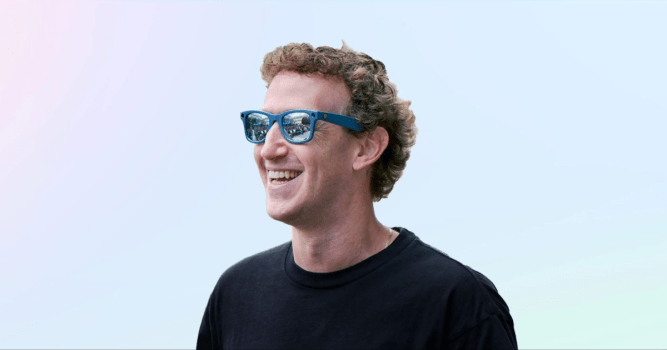Meta CEO Mark Zuckerberg reiterated his belief that glasses will become the primary way users interact with AI in the coming years. Speaking during Meta’s second-quarter earnings call, he emphasized that people without AI-enabled glasses may find themselves at a disadvantage in the future.
Zuckerberg explained that glasses are the ideal form factor for AI because they allow the technology to see and hear what the user experiences throughout the day. Adding a display to these glasses could unlock even greater value, whether through a holographic field of view, as seen in Meta’s upcoming Orion AR glasses, or a more compact display for everyday wear.
He stated that in the future, those without AI glasses or another way to interact with AI could face a significant cognitive disadvantage compared to others. Meta has already made strides in this space with products like the Ray-Ban Meta glasses and the newer Oakley Meta glasses, which allow users to listen to music, capture photos and videos, and ask Meta AI questions about their surroundings. These smart glasses have proven successful, with sales of the Ray-Ban Meta models more than tripling year-over-year.
Zuckerberg acknowledged that Meta’s Reality Labs division, which has been researching these technologies for years, has incurred substantial losses. In the second quarter alone, Reality Labs reported an operating loss of $4.53 billion, bringing total losses since 2020 to nearly $70 billion. Despite this, he framed the investment as a long-term bet on the future of AI and consumer computing.
However, the future of AI interaction may not be limited to glasses. OpenAI recently acquired a startup led by former Apple executive Jony Ive in a $6.5 billion deal to develop new AI consumer devices. Other companies have experimented with alternative form factors, such as AI pins and pendants, though none have gained widespread adoption yet.
For now, glasses remain the most practical option, as they are already widely worn and socially accepted. Yet, as Zuckerberg pointed out, the world didn’t know it needed smartphones until they were invented. The next breakthrough AI device could be something entirely unforeseen.
Zuckerberg remains confident in glasses as the future of AI interaction, noting their potential to seamlessly blend the physical and digital worlds. He believes this vision aligns with the broader Metaverse concept, which AI will help accelerate.

